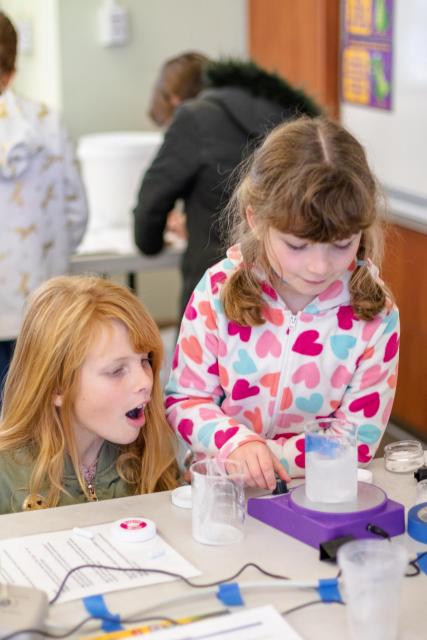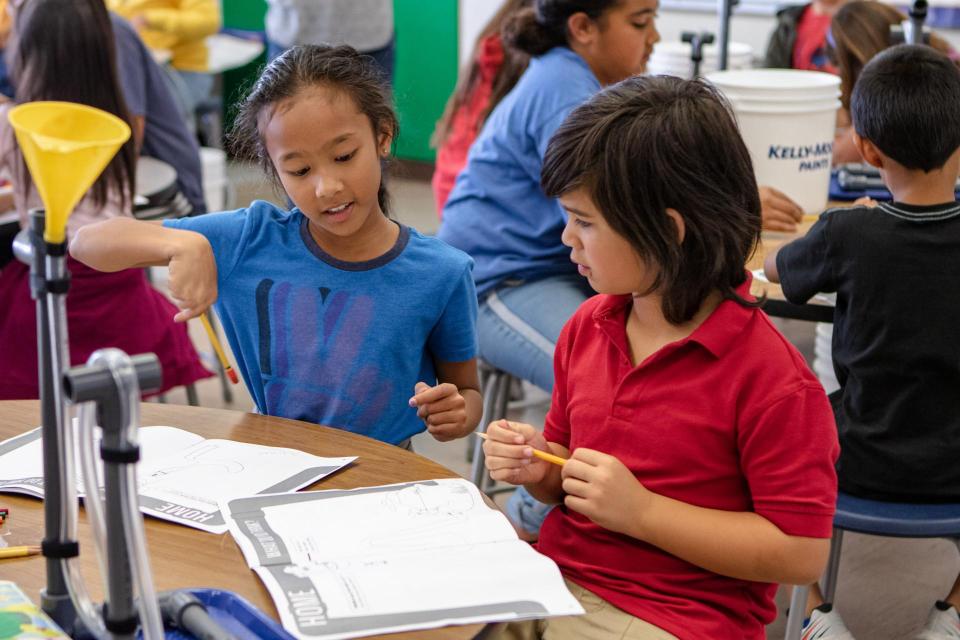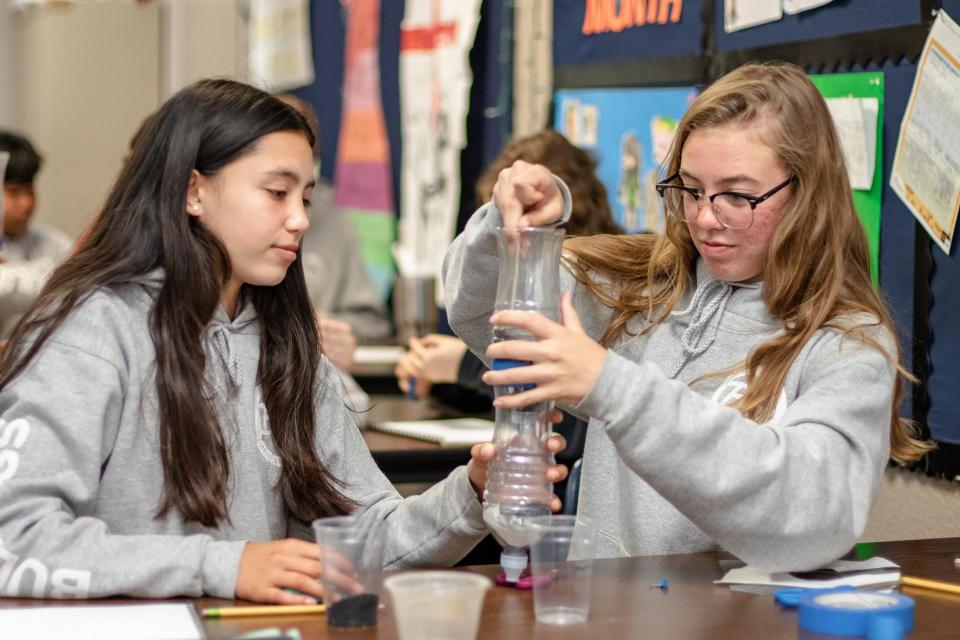The Poop Principle
Our Pedagogy
Renowned local environmental educator Solar Steve, who has trained scores of teachers how to best support students outdoors, has a central guiding philosophy. It’s called the Parking Lot Principle, and it goes something like this: When developing environmental education activities, ask, “Could I do this same activity in a parking lot?” If the answer is yes, we’re not taking full advantage of the opportunities of outdoor education. There is nothing wrong with playing tag or other parking lot games, per se. But in the education lifespan of a typical student, they may only get one week across grades K-5 to really spend time doing environmental education out in the field. The Parking Lot Principle is a useful barometer to ensure we’re making the most of that time.
Central San has a similar philosophy with our education programs. We call it the Poop Principle, and it goes something like this: When thinking about what kinds of learning activities to put in front of a group of students, ask, “Is this something they could do independently, whilst sitting on the toilet?” If the answer is yes, then we are not yet taking full advantage of the collective learning opportunity in front of us. To put that another way, we just laid a turd. It’s ok, we all do it, hopefully everyday. But that turd can be a useful guide to help us think about the kinds of lessons we actually want to design for students. Time spent learning together is precious. Any given group of students and their teacher only come together for a moment in their lives. It is in everyone’s best interest to take full advantage of the time, space, and who is in the room to maximize the learning for everyone.
This is not to say that we shouldn’t have a group of students do a silent reading, for example—it’s that we shouldn’t have them only do a silent reading. Instead, let’s use literacy strategies to capture their thinking while they read. Let’s have them share ideas with their table partners or have the group co-construct ideas about the text they are reading. Let’s use readings to support our understanding of what we are also doing in the classroom, together.
It’s not to say we shouldn’t have students watch a video—it’s that we shouldn’t have students only watch a video. Let’s have them use a note-taking scaffold to capture their ideas and their thinking. Let’s stop the video periodically for students to share their understandings of what is happening with each other. Let’s use a video we just watched to drive our thinking of what we should do or try next.
Even hands-on science investigations, which are almost always done in a group, should not be the only thing we do. Let’s use our hands-on investigations to uncover the variety of thinking about what just happened and why. Let’s use our hands-on investigations to share our divergent thinking and try to come to a group consensus, based on our shared evidence and experience. Let’s use our hands-on investigations to make predictions and then test those predictions, together.
All the resources within this web page use the Poop Principle as a guide. They are designed to maximize time spent learning as a group, to take advantage of all the people in the room. Group science investigations, engineering design challenges, and collective meaning-making are, by design, meant to unlock the power of group learning. These resources are designed to use our poop, and the rest of our contributions to our local wastewater system, as powerful tools for student learning. We all contribute to this system. We should all learn about this system, together. The hope is that by doing that, we can all appreciate the fundamental role this system plays in our daily lives and how we can all work to protect it.



